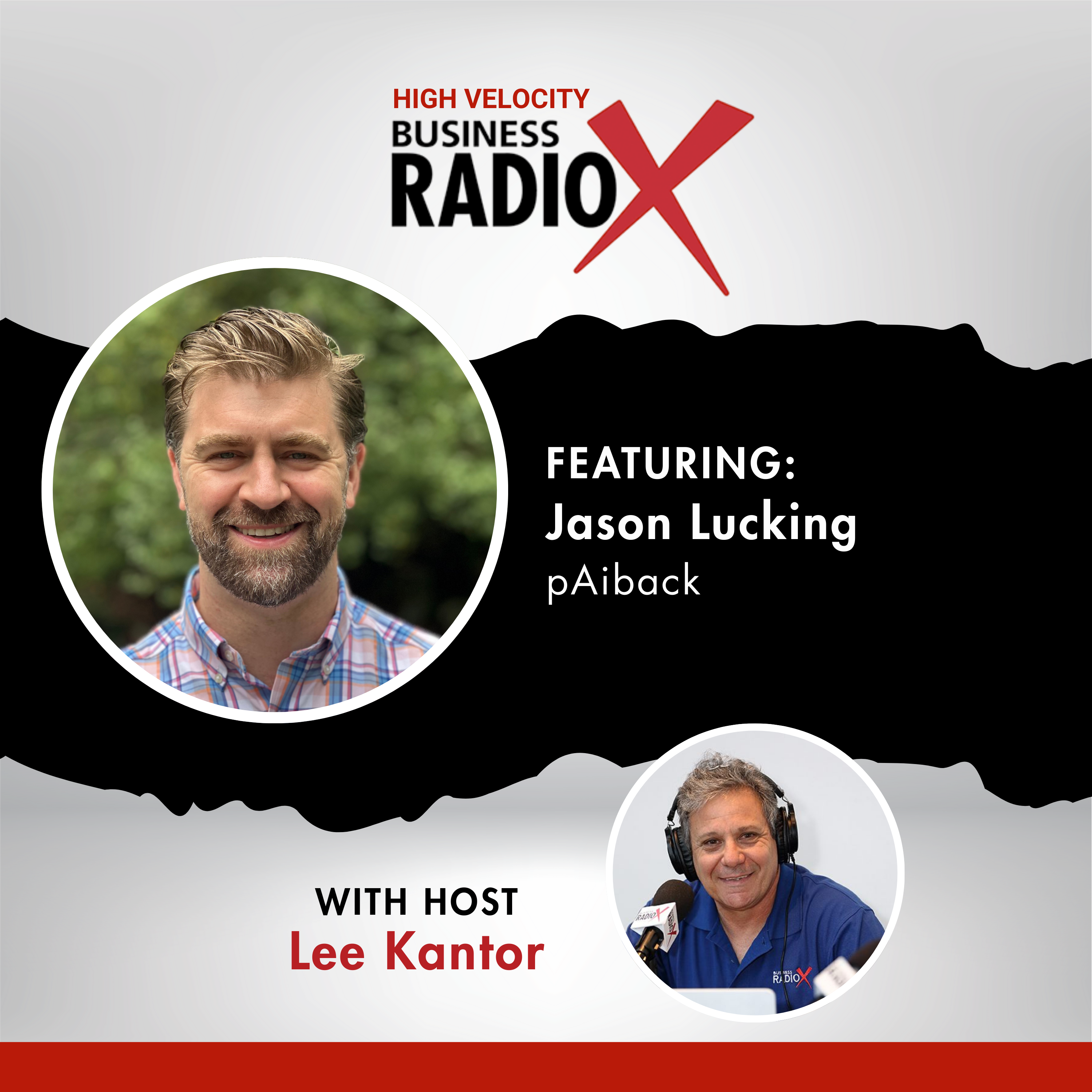
In this episode of High Velocity Radio, Lee interviews Jason Lucking, co-founder and CEO of pAiback, a service that helps frequent flyers save money by monitoring flight ticket prices after purchase and securing credits when prices drop. Jason explains how pAiback works, its benefits for both individuals and businesses, and the airlines it supports. The discussion covers pAiback’s performance-based business model, user experience, and its mission to make travel more affordable and accessible. Listeners also learn how to sign up and connect with pAiback for future savings on air travel.

 Jason Lucking is the Founder and CEO of pAiback. He is a lifelong road warrior who has spent his career at the intersection of craftsmanship, commerce, and travel. After years in the luxury industry, living out of airports and hotel lobbies while building relationships the old fashioned way, he repeatedly experienced firsthand how inefficient modern air travel can be, and how loyalty often goes unrewarded.
Jason Lucking is the Founder and CEO of pAiback. He is a lifelong road warrior who has spent his career at the intersection of craftsmanship, commerce, and travel. After years in the luxury industry, living out of airports and hotel lobbies while building relationships the old fashioned way, he repeatedly experienced firsthand how inefficient modern air travel can be, and how loyalty often goes unrewarded.
That lived experience led him to found pAiback, an AI powered platform designed to help frequent travelers capture airfare price drops automatically while growing loyalty to the airlines. He brings a human centered approach to building technology, a deep respect for relationships, and a personal understanding of travel.
His deep-rooted belief is that travel should create opportunity, exploration, and unity. The more we travel, the more we see, the more we connect with the world around us and beyond.
Connect with Jason on LinkedIn and Facebook.
What You’ll Learn In This Episode
- Benefits of using pAiback for frequent flyers, including potential savings.
- Supported airlines and ticket classes, with plans for future expansion.
- Business model and compensation structure of pAiback.
- Process for users to sign up and utilize the service.
- Discussion on the application of pAiback for small to medium-sized enterprises (SMEs).
- Insights into the ideal user profile for pAiback, including frequency of travel.
- Importance of removing financial and psychological barriers to travel.
- Future plans for enhancing user experience and expanding service offerings.
![]() This transcript is machine transcribed by Sonix.
This transcript is machine transcribed by Sonix.
TRANSCRIPT
Intro: Broadcasting live from the Business RadioX studios in Atlanta, Georgia. It’s time for High Velocity Radio.
Lee Kantor: Lee Kantor here. Another episode of High Velocity Radio and this is going to be a good one. Today we have the co-founder CEO with pAiback on and it is Mr. Jason Lucking. Welcome.
Jason Lucking: Thank you. Thank you. Appreciate you spending some time with me.
Lee Kantor: Well I’m excited to learn what you’re up to. Tell us about pAiback. How you serving folks?
Jason Lucking: Sure. So pAiback was, um, was built out of frustration. We are a travel flight ticket optimizer. Um, as a frequent flier, both for business and with the family, I was always trying to figure out the best time to book my ticket, and I just wanted to figure out the logic that sat behind it and ultimately realizing that I didn’t need to do that because, you know, nowadays, with the rise in Agentic AI and and price dynamics and pAiback was born out of this exact problem, I want to travel more. I want to feel loyal to the airlines. And so pAiback takes your existing flight tickets. We monitor them until you take off, and then when the price of that ticket drops, we get you a credit for the difference with the airline between what you paid for it and what it is today.
Lee Kantor: Now, is that for one drop or for the eventual like last second, as I enter the plane, I’m getting the lowest possible price.
Jason Lucking: It’s from anywhere from between the time that we received your ticket to 24 hours before you take off. And the reason we say that is your ticket might not drop at all. It might drop once, or we’ve seen it drop as many as eight times on a single ticket. So every single time we’ll keep recapturing that credit for you.
Lee Kantor: Now is the price drop like only on first class or does it every every kind of level drop?
Jason Lucking: Yeah. So it’s a great question. It is for so we focus on four major airlines Delta, American United and Alaska. And we’re looking at adding some additional airlines. So that’s one important factor. You have to have bought your ticket directly with the airline as well. So another important factor not through Expedia or Chase or Amex or one of those guys. And then it is any ticket except basic economy. So basic economy is the one that comes with the greatest restrictions. We focus on everything else. So economy, business, first class, domestic, international, all of the above.
Lee Kantor: Now what is kind of so far your biggest drop you’ve seen in terms of dollars.
Jason Lucking: So we saw we saw a single ticket drop $9,000. Um, now, obviously this wasn’t a economy ticket from Raleigh to to Charleston. It was a.
Lee Kantor: International.
Jason Lucking: No, actually, it was New York to Hawaii in interestingly. Really? But international flights South Africa to JFK. They dropped $8,000. That was first class. And and the Hawaii flight was also first class. So but we see an average of $250 is the average drop that we secure. Now that takes into effect economy business and first class. But still that’s a significant number.
Lee Kantor: And you say that like if I travel ten times a year, how many times do you think I’ll see a drop.
Jason Lucking: Yeah. So so our users see a 1 in 2 ticket drop. So 50% of the time the ticket is dropping. And it’s funny because when this was was born, you know, trying to figure out and we’ve all done it, you know, when is the best time to buy our tickets? We’re always told it’s Tuesday at 6 a.m. and clear your cookies. And, you know, make sure that Mercury is in retrograde. You know, all all of the things that we’re told to do, but we never know. Um, ultimately, prices are dropping all day, every day. We see tickets drop on Monday through Friday, we see them drop on Saturday and Sunday, and there’s just no human way of knowing when which flights it is that’s going to be dropping. And do I want to spend the time tracking that flight myself, and then spending two hours on the phone with the airline to, to secure that drop? Um, so it really happens all the time with such consistency. Um, and it’s one, 1 in 2 times it drops.
Lee Kantor: Now is there a minimum that it has to drop in order for pAiback to kind of to execute when it executes in order to get me the discount? Or is it like if it drops a dollar, then you’re going to knock down a dollar?
Jason Lucking: No. So so our minimum threshold that we do is $10. Just for the simple fact that the majority of our user base are frequent fliers. And as much as we’re here to, you know, optimize your tickets to ultimately make you more loyal to that specific airline, because now you’ve got a future flight credit to use with the airline. We also don’t want to be an annoyance and, you know, receiving a $1 credit and then being like, how am I going to use $1 on a flight is a little annoying. So that’s why we set a minimum threshold of $10. And just for the simple fact that we want to make sure that this makes sense so you can spend that money on a future flight.
Lee Kantor: And then the strategy is that once you have pAiback and you, um, you know, you’re tied into it, then it really doesn’t matter when you buy the ticket, because you’re going to get the lowest price up to 24 hours before the flight takes off. So there’s no kind of you don’t need to have that strategy you mentioned earlier.
Jason Lucking: Exactly. So we wanted to remove that. Um, so there’s there’s a couple of pros to this, which is when you say you want to book a ticket, you want to go on a trip, you want to just say, I’m not going to play the game, I’m just going to book my ticket today. And now I have pAiback to catch me, you know, on the way down. Um, the other idea is it’s it’s removing this element of what if? And we live in this world of, of a lack of transparency. We’re adding some transparency to that. But what we want ultimately people to do is say, I want to go and travel. I want to go and see the world, and I want, you know, now I’ve got these credits that that help me go towards that, that goal and motivator. And when today I decide I want to go on a trip, that’s the day I’m going to book it no longer is the when is the best time to buy. We always say the best time to buy now is pAiback. That’s right.
Lee Kantor: Now and then. So let’s play out a scenario. Um, I’m gonna I’m gonna have to travel to, uh, Minneapolis in a month or so. Um, I haven’t got my ticket yet. I, um, I’m not a member of pAiback. So how do I join pAiback and then tie pAiback to. I’m going to fly Delta. How do I tie pAiback to Delta so that all this is going to happen seamlessly?
Jason Lucking: Sure. So it’s super simple. You’ll go to our website which is pAiback.app. So the website is p A i back dot app. The actual app is in development right now. You’ll sign up costs nothing. To sign up, use your email, your first name. There’s a couple of additional details that we require. Then you’ll go and book your ticket directly with Delta. Now you can do one of two things. You can forward that ticket to US ticketing at pAiback app or when during your signup, you can integrate your inbox. So what the integration with your inbox means you book a flight with Delta. You don’t even have to lift a finger. We’re going to pick up any Delta, American, United or Alaska flights. They’ll come straight through to us. We’ll begin monitoring them immediately. And then really, there is nothing else for you to do at this point except wait. So we’re monitoring that if the price drops, we step in. We take care of that for you. You’ll receive an email from the airline saying, hey, you’ve secured a credit. You’ll receive an email from us saying, hey, we’ve secured you a credit. And then that will just keep happening. You stay on the same flight, in the same seat, you know, unless the airline changes the time, that’s the only way that there could be any changes that occur.
Lee Kantor: Now, what if I’m buying the ticket for my wife and I? Does she have to sign up separately?
Jason Lucking: Yes. So if if your wife is flying separately, if she is the the principal on that, uh.
Lee Kantor: Like it’ll be I’ll be the principal and then I’ll have a passenger flying with me. So we’ll, we’ll question.
Jason Lucking: So if you, if you book a ticket and it’s you and your family of four, you’re you and your wife, then what you’re going to do is you’ll just submit that one confirmation and each passenger is under that confirmation. So if the price of that ticket drops, you will receive a credit. Your wife will receive a credit. If you have children, your children will receive credit. So everybody in reaps the benefit of those price drops. So it doesn’t just apply to you because just you have signed up.
Lee Kantor: So but I have I’m the only one who has to sign up. And all the credits will go to the appropriate people.
Jason Lucking: Correct. Exactly. So everybody benefits from it. You only need one Sign up. Yes.
Lee Kantor: And then how does pAiback get compensated?
Jason Lucking: Sure. So we, as I said, it’s free to sign up. It’s free to us to monitor. The only time that we make money is when you win. So when you win, we win. So if we saved you $100 at the end of that month, we’re going to bill you and you submit your credit card at sign up 20% of whatever we’ve saved you. So you net out 80%. And when we’ve saved you money, we we make a small portion of that. So we’ll charge you 20% of whatever we’ve secured for you.
Lee Kantor: And then so out of the $100, $20 in cash goes to you, but $80 in credit goes to me.
Jason Lucking: So you’ll you’ll receive a full $100 credit in your airline wallet. We will then charge you.
Lee Kantor: $20 in cash, right? That I’m paying immediately at cash or credit card. Yeah.
Jason Lucking: A convenience fee. A service fee. Yeah. Right.
Lee Kantor: And then I’m getting $100 placed into my Delta kind of airline wallet. And then, so the next time I use a Delta flight, is Delta going to say like, are they going to remind me I have $100 there? Like, how does how do how do I use that $100 once I’m ready to buy a second flight?
Jason Lucking: Yeah. So each airline acts a little differently. If you take Delta as an example, there’s an amazing useful feature. You’ll scroll down and enter your form of payment. There’s a little one that says use use my credits. Uh, American is a little different. United is a little different. So all of the airlines act marginally different. But during your sign up or during your purchase of a future flight, you’ll be able to select or input your future credit. And that’s something that we’re really working towards and steering towards. We don’t want to become a travel agent, but I want you to travel more. I want you to see more of the world or engage with people more, whether they’re people that you know or don’t know. So for us taking those credits and encouraging future travel, well, that’s our next iteration as well as we continue to grow the business. And we want you to go out and see the world, you know, explore more.
Lee Kantor: Now, um, how does it work for companies like, say, like my kid works for a company twice a month. He’s traveling somewhere. There’s probably eight of them together, going to different locations around America. How would it work for a company that has kind of, you know, that kind of situation?
Jason Lucking: Yeah. So we’re working on a small to medium sized enterprise model right now. Um, we have a lot of people that are road warriors, and I was formerly a road warrior as well. And so I buy my ticket, I submit it to pAiback, I monitor it and I’ll pay back monitors it. And from a small to medium enterprise, we’re working with a couple right now to refine that model. And for those so that there can be a larger benefit. Some of the smaller businesses might use, you know, travel platforms like Concur or Navan or, or, you know, one of those as well, in which case those currently don’t work. That’s like purchasing your ticket through a third party. That’s like buying it through a Chase or on Amex. We’re focused on direct bookings, bookings that are booked directly with the airlines.
Lee Kantor: So if the company is just has a person on staff that’s buying tickets, they can talk to you and figure out a way to work together.
Jason Lucking: 1,000%, 1,000%, yeah. We’re really, um, you know, our ultimate goal is to is to allow this to be a small to medium sized enterprise and it to be a direct to consumer product as well.
Lee Kantor: So what do you need more of? How can we help you?
Jason Lucking: Well, you know, we’ve been so fortunate that, um, you know, having people such as yourself interested and and sharing the sharing the good word of pAiback. Our deep rooted ethos as as I feel like I’ve mentioned, is really to get people out and see more of the world now, is that are we doing that through saving you some money and 100%? I come from a background of of sales, and everything that I sell is something. It’s something that people where, you know, it’s it’s not necessarily a necessity. But I feel that traveling the world and just travel in general just is so important to life and society these days. And, you know, that’s what we really want. We want people to sign up. We want people to save a couple of bucks, optimize their tickets, and then go out again, explore more, see more of the world. That’s what we we really want our company to, um, to be known for.
Lee Kantor: Yeah. And I think that you’re taking away some of the friction because there’s some people out there that are like, oh, I’m interested in going to this location. And then they in the back of their head like, well, today’s not the best day to buy this ticket. I have to wait till Tuesday or whatever. They think they know about this. And then all of a sudden, you know, life gets in the way and then they stop thinking about it or they moved on where this can get someone to take action right away when they have that impulse to actually go somewhere because they know they’re not going to kind of pay a price for delay.
Jason Lucking: Exactly, exactly. I mean, I personally used to set up oodles of Google alerts and my inbox would fill with them and it would be telling me that the price has gone up, the price has gone down. The question is, is what is exciting for you? Is a $10 drop enough for you to want to act on it? It’s $100 drop, enough for you to act on it. And everybody has a different threshold on that. But one there’s the monitoring side. Two, there’s the time component. So okay, let’s say I do set up a Google alert and I check it at 7 p.m.. But the price actually dropped at 6 a.m.. Now I’m on the phone with a customer service for an hour to two hours for them to tell me. Oh, by the way, the price didn’t drop. That was earlier this morning. So there’s a time to value proposition that exists here. But as well as you said, it is removing the question of when do you have an impulse. You want to travel and see the world. You want to travel on a business trip or go see a family member? You don’t need to think about playing the game anymore. You can now just book that ticket.
Lee Kantor: And, um, so when did you feel like you had something that’s going to work? Can you talk about kind of that, uh, the origin story about when you were testing this and then you actually saw it kind of come to fruition as you imagined?
Jason Lucking: Yeah, sure. So I, I was a frequent flier. Um, you know, as a road warrior. And then my, my wife turned me into a, a a frequent flier is how I would describe it. Signing up for directly with the airlines. And I booked a trip. And then a month later, my wife wanted to come on that business trip with me. And ultimately her ticket was, you know, a hundred bucks less expensive. So that was this, like, oh my word. Pricing dynamic exists. So I was fortunate enough to to partner with this really, really smart co-founder and based in the UK. And we just started testing, you know, is is there a is there a true um, success here. And we found, you know, I built it largely for my, for myself and my family to start off with. And we were seeing higher than 50% price drops. It was it was higher at that point. Um, and we were just like, there’s something here. And it’s not just for, for the road warriors, not just for the people that are, you know, price conscious. What we realized is this is a huge airline play as well. We’re building airline loyalty for people. And and so it was it was as an entrepreneur you have to put something in, take the feedback, put something else in, take the feedback and just keep reworking that cycle. And we had we had our, you know, mo out of it. But ultimately everything has a little fluidity with it. There’s going to be a little bit of change and that comes from it. And so that’s that’s kind of been our journey of, of, of building it. We’ve had amazing success with frequent fliers, amazing success with um, you know, people that are passionate about technology. Um, so we’ve been we’re very fortunate to have such a loyal base of people that love what we do, love what our mission is, and want to share that.
Lee Kantor: So the ideal customer is that frequent flier? The person who, um, wishes they could travel more, and also that small to medium sized company that is booking their own travel directly through, uh, the airlines.
Jason Lucking: Exactly. We say that anybody that’s traveling 2 to 3 times a year is going to benefit from this. You know, when you receive a future flight credit, that credit lasts a year from the time of purchase. So you need somebody that is flying more than once a year. Um, and 2 to 3 times we feel is, is that real? Uh, you’ve got that start or starting at least that travel bug. Now we have people who are flying once or twice a week as well with, with some insane regularity. And, you know, I’m sure their house or apartment is more like a storage unit than than the hotel rooms that they’re actually living in. So ultimately, if we consider frequent fliers, anybody that flies 2 to 3 times a year, but there’s a lot of a lot of people that are flying. You know, once a week, once a month that, you know, once a quarter, which, which really benefit from this.
Lee Kantor: And if people want to connect with you and learn more, what is the website one more time?
Jason Lucking: Yeah. So the website is pAiback app which is p a c k dot. Best way to find us, you know, social medias or through LinkedIn. And again you can you can find me on there as well Jason looking look ING.
Lee Kantor: Well Jason, thank you so much for sharing your story today. You’re doing such important work and we appreciate you.
Jason Lucking: Thank you Lee, I appreciate it. Thank you.
Lee Kantor: All right. This is Lee Kantor. We’ll see you all next time on High Velocity Radio.
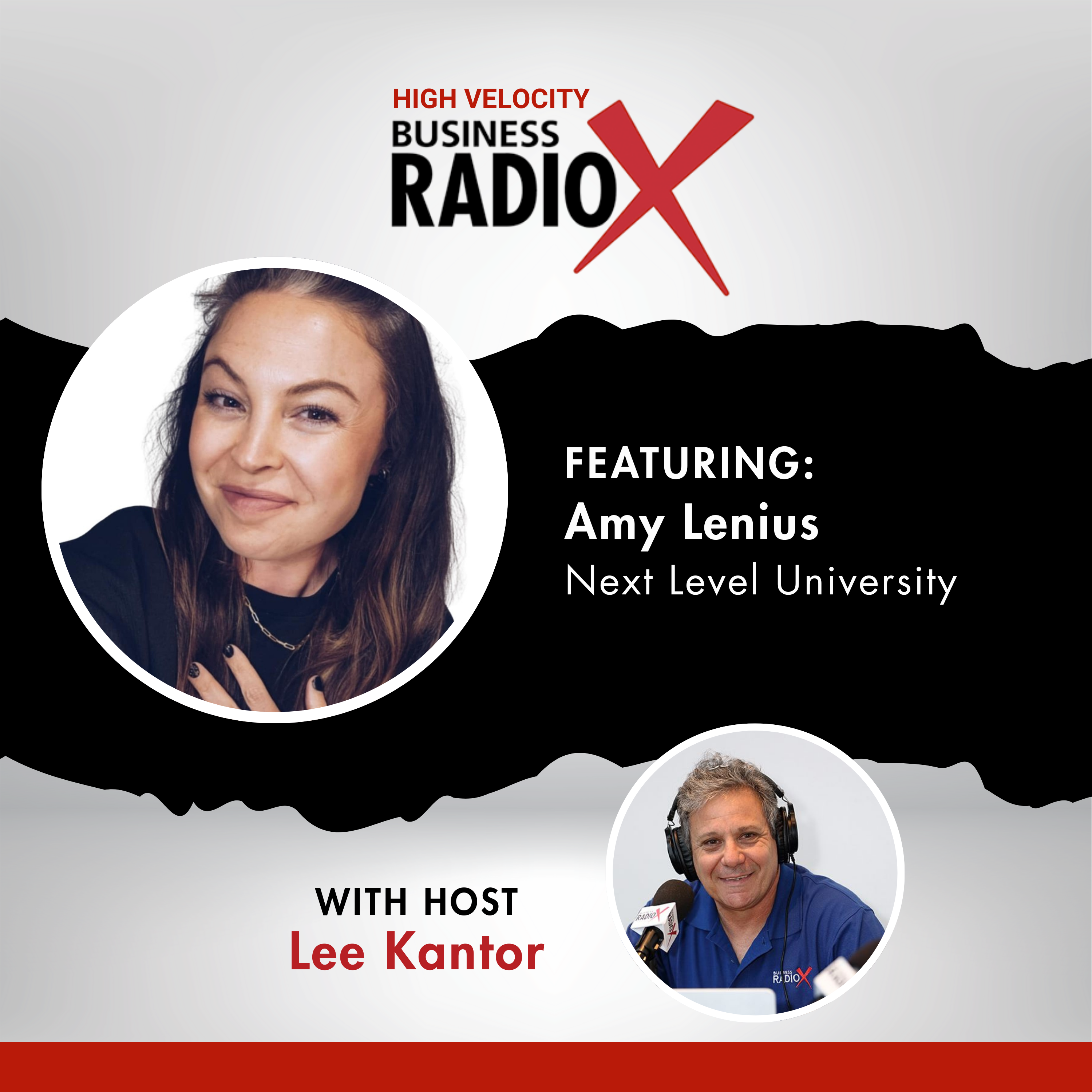
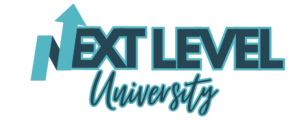
 Amy Lenius is the Director of Group Coaching at
Amy Lenius is the Director of Group Coaching at 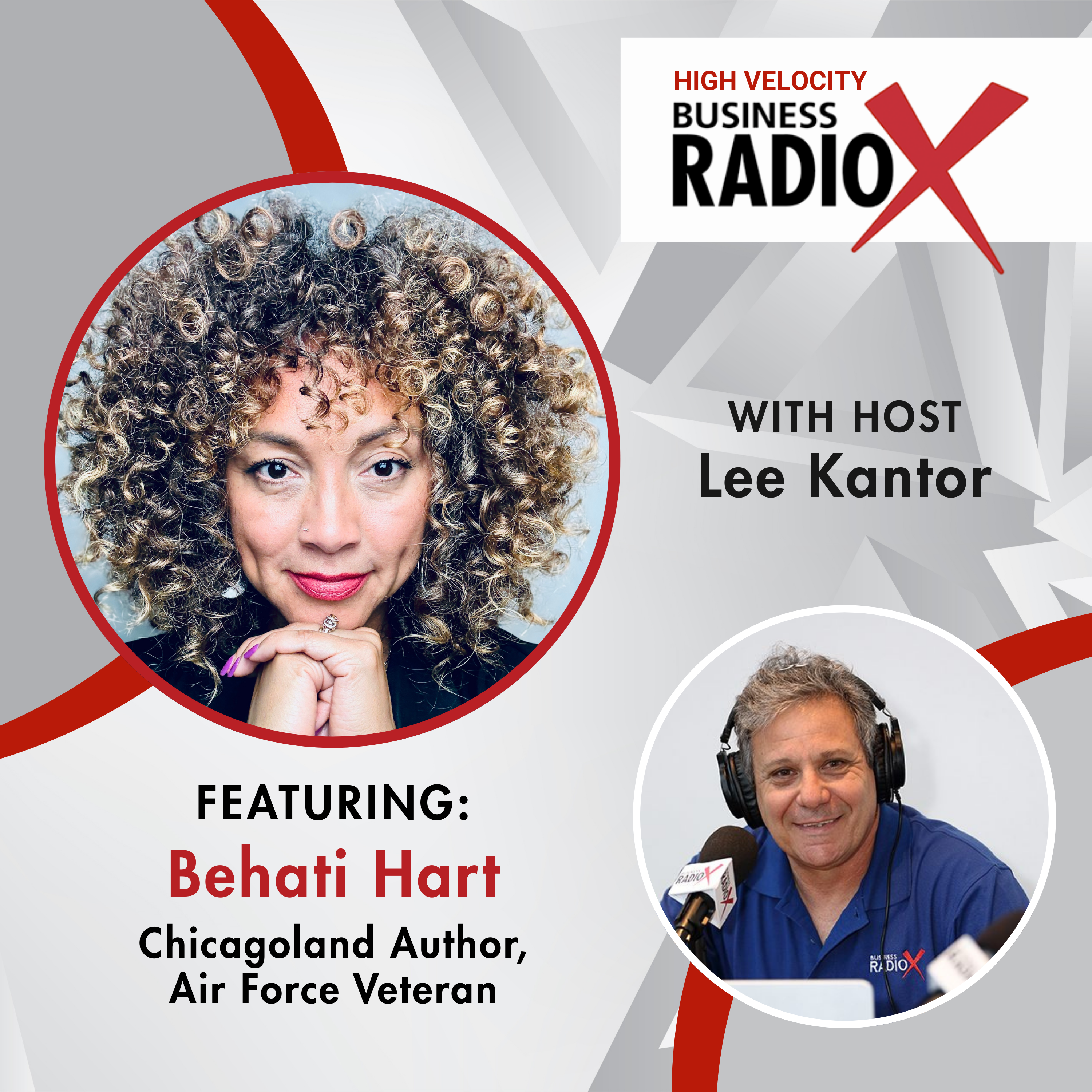
 Behati Hart is
Behati Hart is 
 In this episode of Atlanta Business Radio, Lee interviews Ari Milrud, co-founder and CEO of Hive—a contractor marketplace tailored for real estate investors and house flippers in Atlanta. Ari shares his journey from high school entrepreneur to startup founder, discusses the challenges flippers face finding reliable contractors, and explains Hive’s rigorous vetting process. The conversation covers building trust in the contractor community, Hive’s multilingual approach, and the importance of credibility. Ari invites listeners to connect and learn more about Hive’s mission to streamline real estate renovations through technology and transparency.
In this episode of Atlanta Business Radio, Lee interviews Ari Milrud, co-founder and CEO of Hive—a contractor marketplace tailored for real estate investors and house flippers in Atlanta. Ari shares his journey from high school entrepreneur to startup founder, discusses the challenges flippers face finding reliable contractors, and explains Hive’s rigorous vetting process. The conversation covers building trust in the contractor community, Hive’s multilingual approach, and the importance of credibility. Ari invites listeners to connect and learn more about Hive’s mission to streamline real estate renovations through technology and transparency.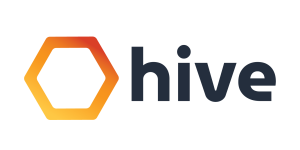
 Ari Milrud is a student entrepreneur based in Atlanta. He is the co-founder of
Ari Milrud is a student entrepreneur based in Atlanta. He is the co-founder of 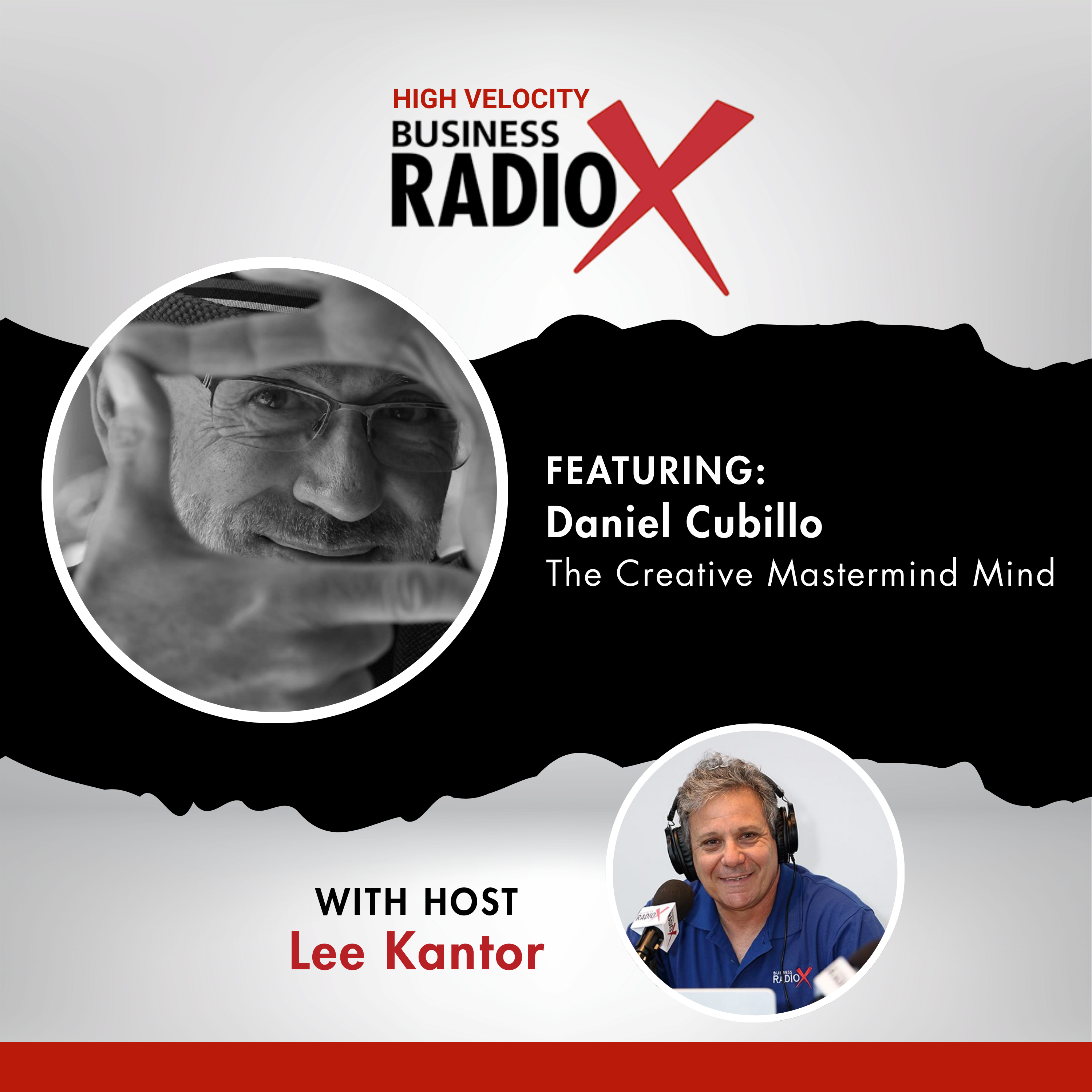
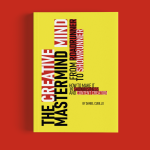
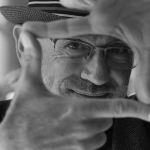 Daniel Cubillo is a creative architect trusted by the world’s most influential media companies. Over the past decades, he has developed and produced content for platforms that define global entertainment—including NBCUniversal, Discovery, MTV, Facebook Watch, Netflix, Snapchat or The Zeus Network.
Daniel Cubillo is a creative architect trusted by the world’s most influential media companies. Over the past decades, he has developed and produced content for platforms that define global entertainment—including NBCUniversal, Discovery, MTV, Facebook Watch, Netflix, Snapchat or The Zeus Network.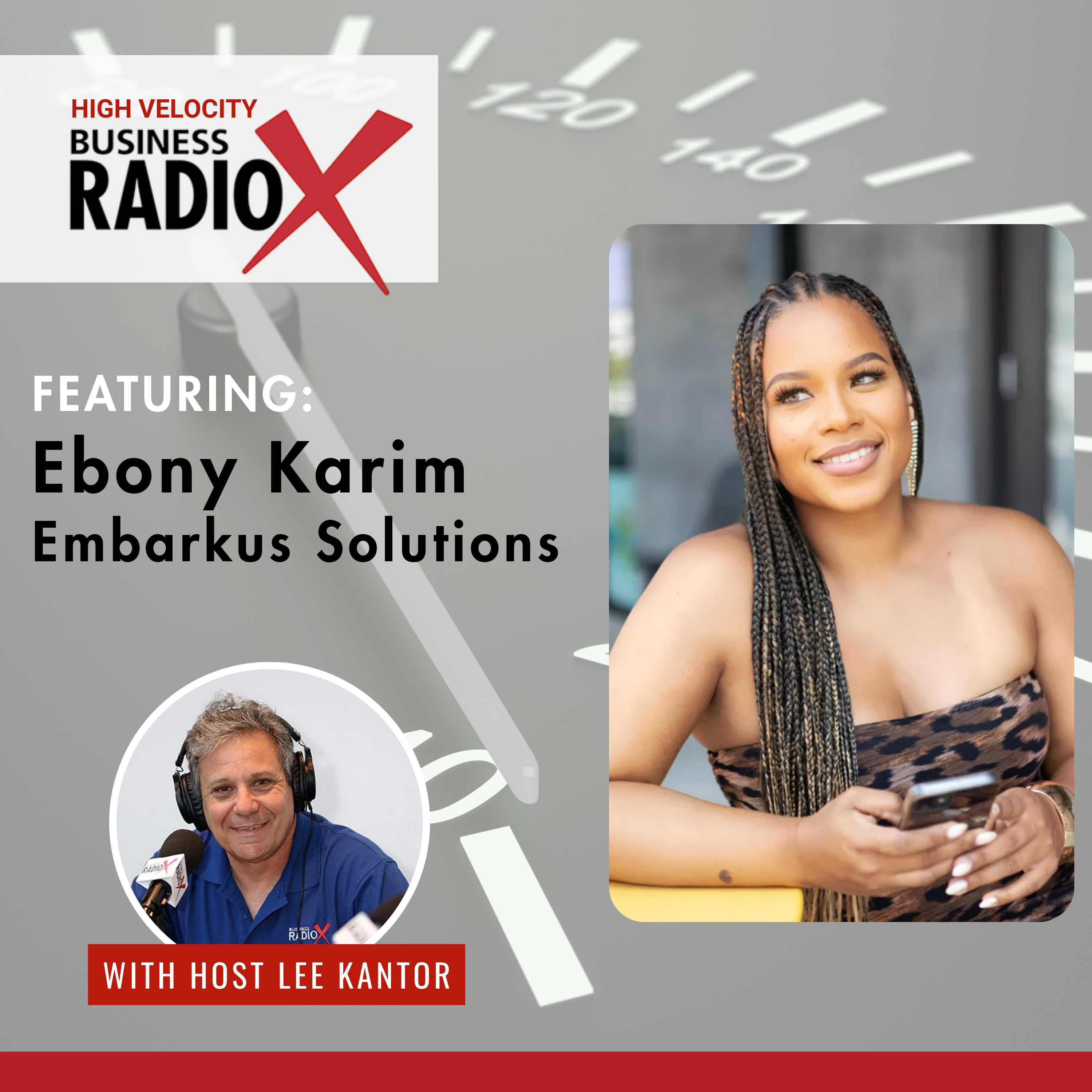
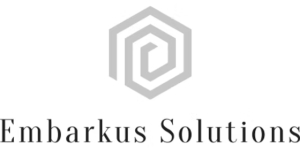
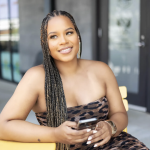 Ebony Karim—a serial entrepreneur, educator, and innovator making an impact across federal consulting, wellness, and beauty-tech.
Ebony Karim—a serial entrepreneur, educator, and innovator making an impact across federal consulting, wellness, and beauty-tech.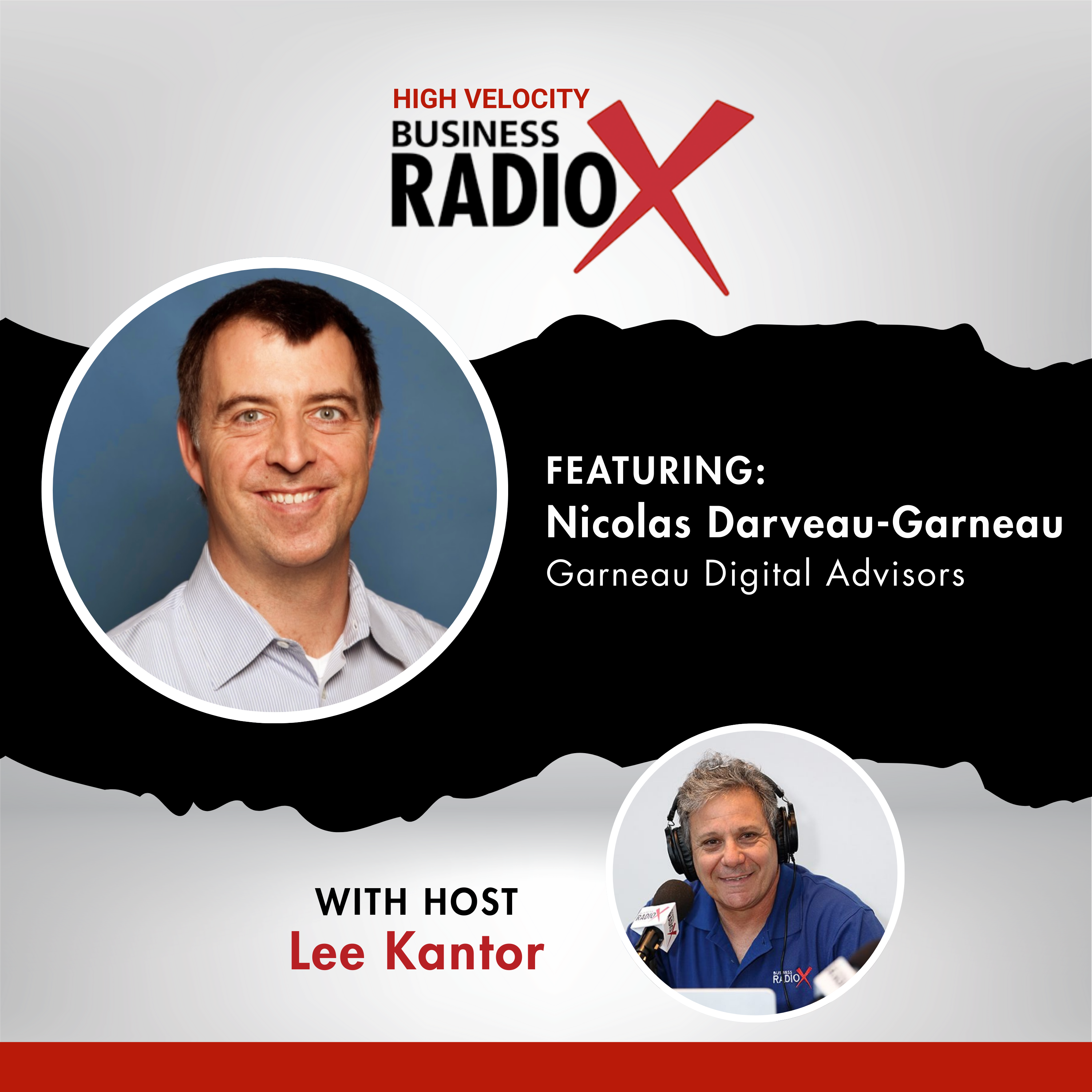
 Nicolas Darveau-Garneau (“Nick”) is a leading expert in growth, artificial intelligence, and digital transformation with over 25 years of experience at the intersection of technology, strategy, and innovation.
Nicolas Darveau-Garneau (“Nick”) is a leading expert in growth, artificial intelligence, and digital transformation with over 25 years of experience at the intersection of technology, strategy, and innovation.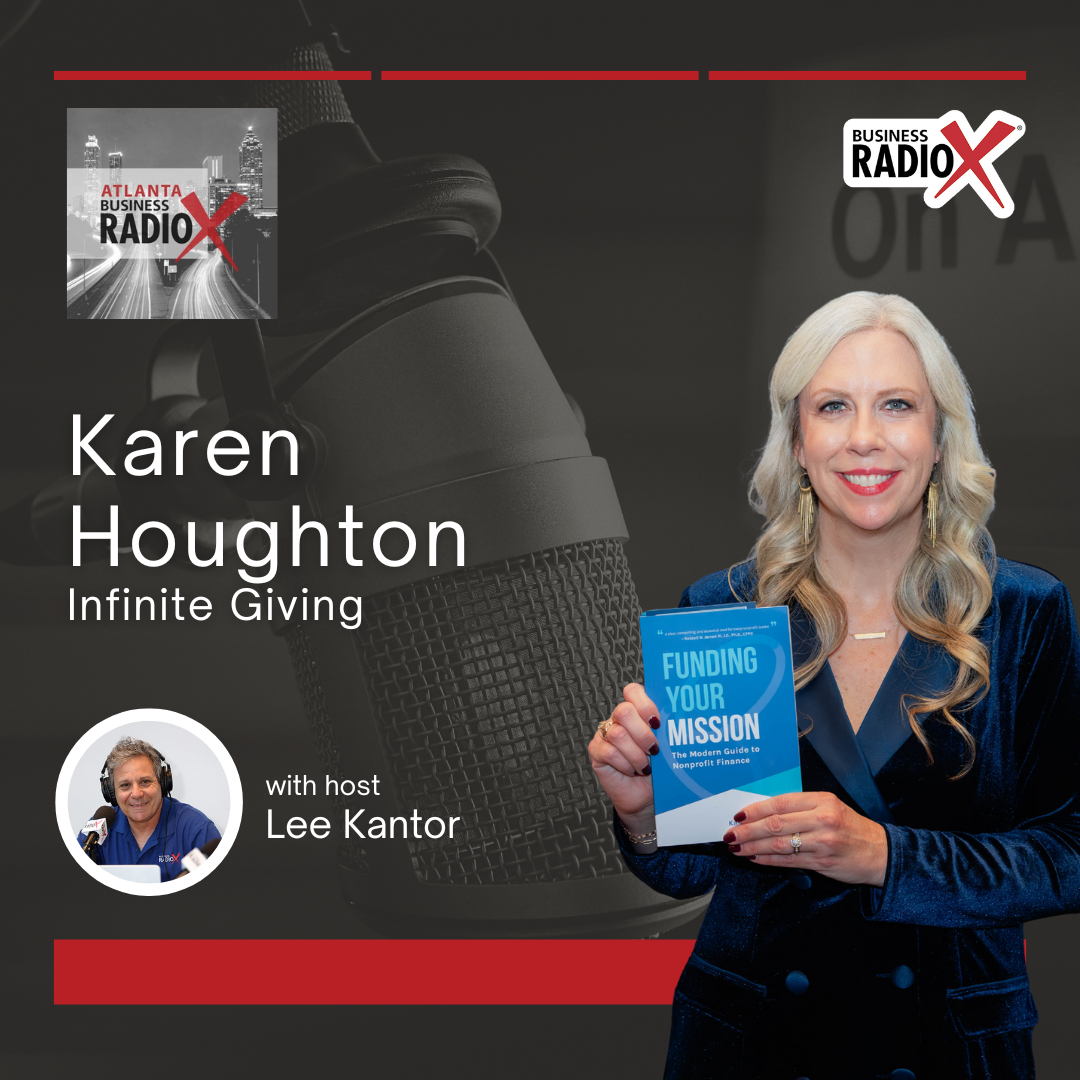
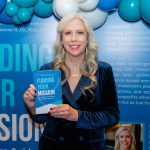 Karen Houghton is the CEO and co-founder of
Karen Houghton is the CEO and co-founder of 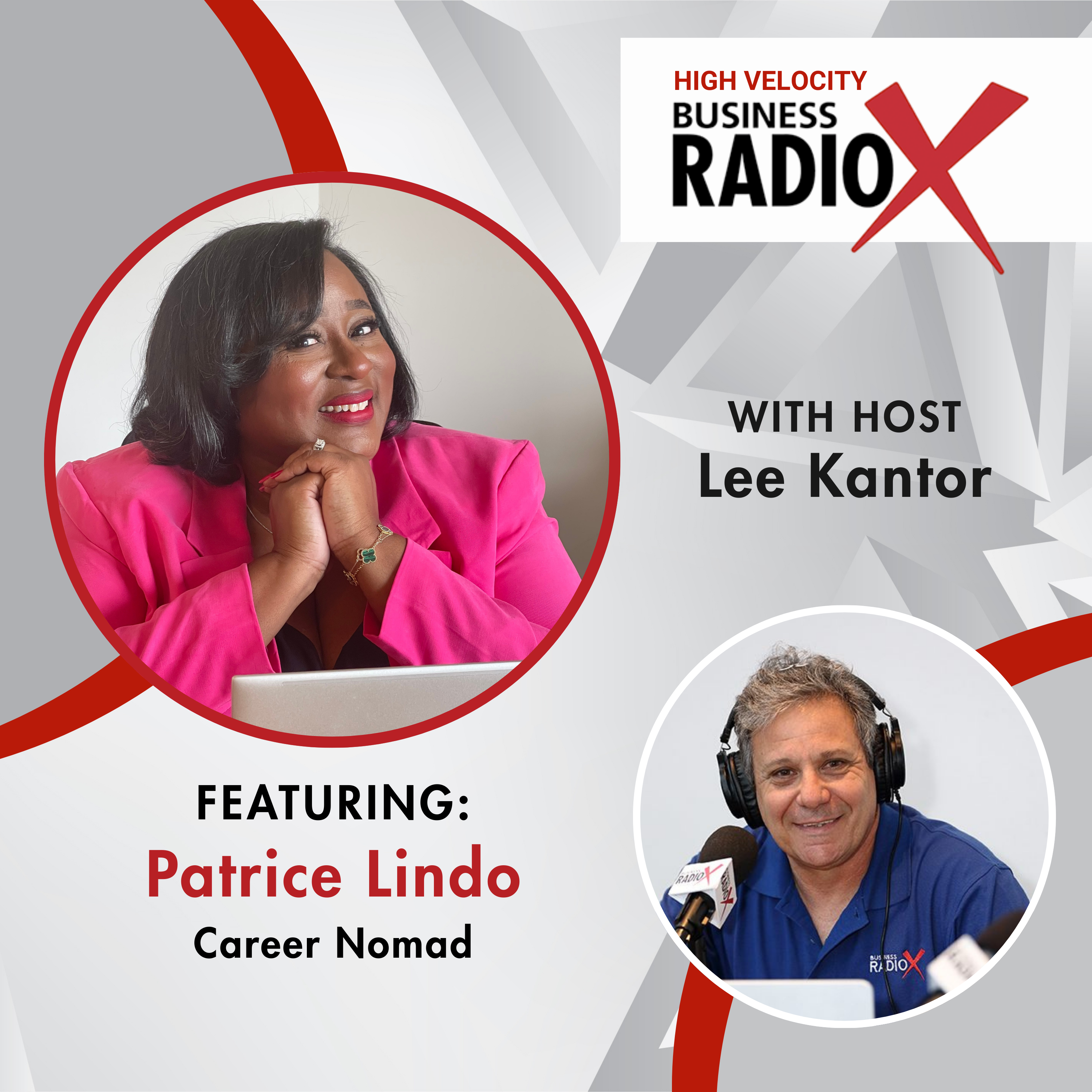
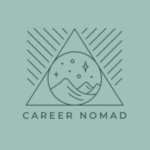
 Patrice Williams-Lindo is not your average career strategist. As the CEO of
Patrice Williams-Lindo is not your average career strategist. As the CEO of 













